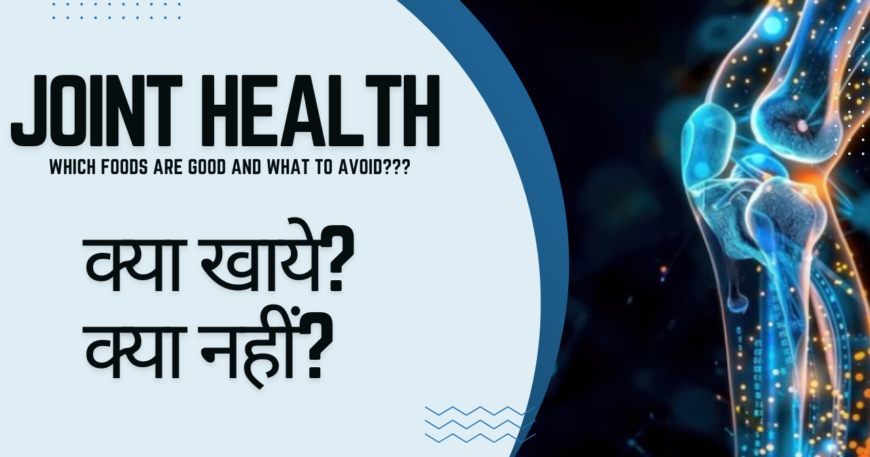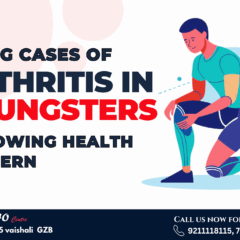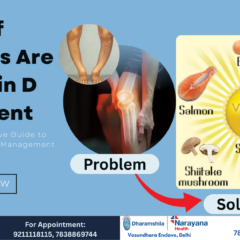
Joint Health: Which Foods Are Good and What to Avoid?
Joint health plays a crucial role in maintaining mobility and overall well-being as we age. While many factors contribute to joint health, one of the most significant is diet. Eating the right foods can strengthen your bones, protect cartilage, and reduce inflammation, while the wrong choices can lead to joint pain and stiffness. In this blog, we’ll explore foods that are beneficial for joint health and those you should avoid to keep your joints in optimal condition.
Foods That Promote Joint Health
1. Roasted Makhana
Roasted makhana, also known as fox nuts, is a great snack for promoting joint health. It is rich in antioxidants and has anti-inflammatory properties, making it an excellent choice for reducing joint pain and swelling. Makhana also contains calcium, which is essential for strong bones.
2. Dairy Products
Dairy products like milk, cheese, and yogurt are packed with calcium and Vitamin D, both of which are vital for bone health. Calcium helps build and maintain strong bones, while Vitamin D improves calcium absorption. Consuming adequate amounts of these nutrients can help protect the cartilage and bones that support the joints.
3. Bananas
Bananas are not only rich in potassium but also contain calcium, which is crucial for maintaining joint health. They help replenish essential minerals in the body and improve bone density, reducing the risk of joint pain. Their anti-inflammatory properties also make them a great choice for keeping inflammation at bay.
4. Seeds (Pumpkin Seeds, Sunflower Seeds)
Pumpkin and sunflower seeds are nutritional powerhouses rich in omega-3 fatty acids and antioxidants. Omega-3s are known for their anti-inflammatory effects, which can help reduce joint pain and stiffness. Additionally, these seeds are excellent sources of magnesium, a mineral that supports bone health and prevents joint-related conditions like osteoporosis.
5. Soaked Almonds
Soaked almonds are an excellent source of Vitamin E, calcium, and antioxidants. Vitamin E is known for its ability to protect joints from oxidative damage, while calcium supports bone strength. Soaking almonds makes them easier to digest, ensuring you get the maximum benefit from these nutrient-dense nuts.
Vitamins and Nutrients to Look For
Incorporating foods rich in calcium, Vitamin D, Vitamin K, and antioxidants is key to supporting joint health. These nutrients help maintain strong bones and cartilage while reducing inflammation and preventing joint degeneration. Here’s why they’re essential:
- Calcium: Strengthens bones and helps prevent joint-related issues.
- Vitamin D: Promotes calcium absorption and prevents joint inflammation.
- Vitamin K: Supports bone health and aids in the formation of healthy cartilage.
- Antioxidants: Fight oxidative stress, which can damage joints and lead to inflammation.
Foods to Avoid for Joint Health
While eating the right foods can improve joint health, consuming the wrong ones can lead to inflammation, cartilage breakdown, and increased pain. Here are some of the foods to avoid if you want to protect your joints:
1. Food High in Trans Fat
Trans fats are found in processed and packaged foods like cakes, cookies, and fast food. These fats can increase inflammation and contribute to joint pain and stiffness. Avoiding foods with trans fats can help you maintain better joint health and reduce the risk of arthritis.
2. Gluten
For those sensitive to gluten, consuming gluten-rich foods like wheat, barley, and rye can trigger inflammation in the joints. This is especially true for individuals with gluten intolerance or celiac disease, who are more likely to experience joint pain as a symptom. Opt for gluten-free grains like quinoa, brown rice, or millet instead.
3. Refined Oils and Fried Foods
Refined oils like vegetable oil, corn oil, and soybean oil are high in omega-6 fatty acids, which can promote inflammation when consumed in excess. Similarly, fried foods contain harmful compounds that can worsen joint pain. It’s best to replace refined oils with healthier options like olive oil, which contains anti-inflammatory omega-3 fatty acids.
4. Processed and Packaged Foods
Highly processed foods such as chips, frozen meals, and packaged snacks often contain additives, preservatives, and unhealthy fats that can aggravate joint pain. These foods are typically high in trans fats and refined sugars, both of which promote inflammation in the body and damage cartilage.
5. Excessive Salt and Sugar
Diets high in salt can cause water retention, leading to swollen joints and increased discomfort. Excessive sugar intake, especially from sodas, sweets, and candies, can trigger inflammation and contribute to joint pain. To keep your joints healthy, try to limit your intake of added sugars and salt.
6. Canned Beverages
Canned beverages like sugary sodas and energy drinks are high in artificial sweeteners, preservatives, and sugars. These substances can cause inflammation, leading to increased joint pain. Instead, opt for healthier beverages like water, herbal teas, or freshly squeezed juices that nourish your joints without harmful additives.
7. Excessive Alcohol
Excessive consumption of alcohol can deplete your body of essential nutrients like calcium and magnesium, both of which are necessary for bone and joint health. Additionally, alcohol can increase the level of uric acid in the body, leading to joint inflammation and conditions like gout.
Conclusion
Maintaining joint health is crucial for long-term mobility and quality of life. By consuming foods rich in calcium, Vitamin D, and antioxidants, you can protect your bones and joints, reduce inflammation, and improve overall joint function. Incorporating foods like roasted makhana, dairy products, bananas, pumpkin seeds, and soaked almonds into your diet can provide the nutrients necessary for optimal joint health.
On the other hand, it’s equally important to avoid foods high in trans fats, gluten, excessive sugar, and salt, as these can worsen joint pain and contribute to inflammation. Limiting processed foods, refined oils, and excessive alcohol consumption can help you protect your joints and maintain a healthier lifestyle.
By making mindful choices about your diet, you can improve your joint health and enjoy an active, pain-free life for years to come.


